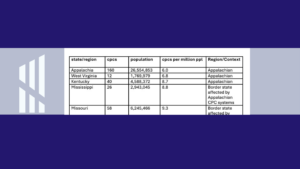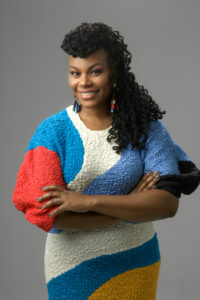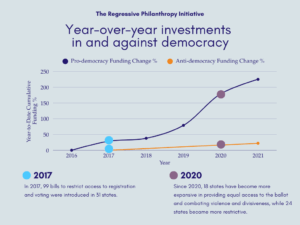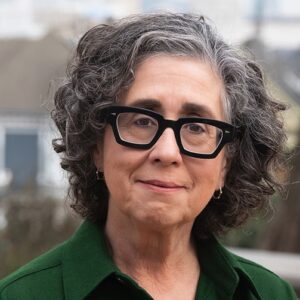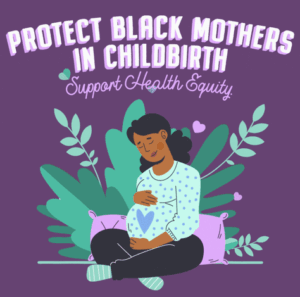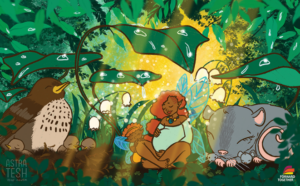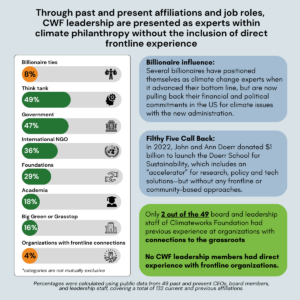A version of this post originally appeared on EPIP’s blog.
Late last year, I was struck when someone on Twitter asked, “What should be the theme song for the social justice movement?” My immediate, almost instinctive response was “We Are One” by Maze featuring Frankie Beverly.
On the surface it may appear to be a love song about a couple that needs to get over their mess so they can have a better relationship. However, as an activist and lover of my people, I have long thought about the subtle messages that songs, and other works of art, have for the global struggle for liberation, justice and peace. Believing that unity is one of the most important principles of a nation, and that love is the most powerful force in our world, I understand the messages of “We Are One” to be at once a proclamation of our love for one another, the need for us to get over our issues and get to work, a formula for the ultimate victory in our struggle for liberation and a pathway to articulating the collective vision for the kind of justice and peace that will right this world. I know, that’s a lot to get out of a slow jam.
The closing plenary of PolicyLink’s recent Equity Summit 2015, Building a Multiracial, Multigenerational Equity Movement, was an especially powerful example of “We Are One” in action. The panel featured many of my professional sheroes and heroes, but what happened was even far beyond my expectations. Not only were there representatives from different races and different generations, but almost every difference (with the exception of physical ability) that makes the United States the most diverse country on the planet was on the stage.
The panelists’ professional affiliations and accomplishments also represented a breadth of experiences and philosophies. This could have potentially devolved into a public “fight” to assert who was the most oppressed and which issue the most critical, but something else happened. There was a sharing amongst the moderator and the panelists that took the now-seemingly cliché notion of “injustice anywhere is a threat to justice everywhere” out of blog posts titles, Facebook cover photos and campaign rhetoric, and placed it before the 3,000 organizers, activists, funders, practitioners and officials gathered at the Summit, and the thousands more watching online.
The moderator, Dr. Robert Ross of The California Endowment, opened the discussion by declaring that his generation, the civil rights generation, has had at best “a mixed record” in running their leg of the race for liberation. From this point, you could almost see the tension released from the shoulders of the younger panelists – DeRay McKesson of We the Protesters, Carmen Perez of The Gathering for Justice and Linda Sansour of the Arab American Association of New York. At the same time, the more senior panelists – Nick Tilsen of Thunder Valley, Geoffrey Canada of Harlem Children’s Zone, Mary Kay Henry of SEIU and Stewart Kwoh of Asian Americans Advancing Justice – raised their heads. Both groups were now prepared to listen and to share.
The very practical need to view the numerous battles against injustice happening around the world as one struggle, was expressed well by Geoffrey Canada: “We are a movement of movements because we are fighting the same people. There is no white supremacist that hates Black people and loves Native Americans.” This sentiment was also summarized when Nick Tilsen shared how the Lakota Nation views the relationships between generations. He explained all Lakota are responsible for seven generations – the three that preceded him, the three that will follow him and Tilsen’s own, the seventh. Fittingly, there were seven panelists seated in a row, with Tilsen in the very middle.
A belief in the interconnectedness of people and the many struggles against injustice in the world has been a quiet, but prominent guide in the way I worked throughout my career, and lived my life. Over the past three years, this belief has been at the forefront of my mind, and I have consciously worked to be a connector of people representing the communities, organizations, philanthropies, corporations, governments and other entities impacting the lives of the oppressed. In many ways, my philosophy and view of our world is captured by the PolicyLink’s Equity Manifesto:
“This is equity: just and fair inclusion into a society in which all can participate, prosper, and reach their full potential. Unlocking the promise of the nation by unleashing the promise in us all.”
I am so grateful for the opportunity to attend Equity Summit 2015 as a member of EPIP’s PCN Delegation. The energy and renewal that came from learning and sharing valuable lessons with 3,000 of the most brilliant and committed people working for our collective liberation will be with me for the rest of my life. Indeed, we are one!
Bomani Johnson is senior director of programs and partnerships at DC Trust. He was a member of EPIP’s PCN Delegation. Follow @EBomani on Twitter.
